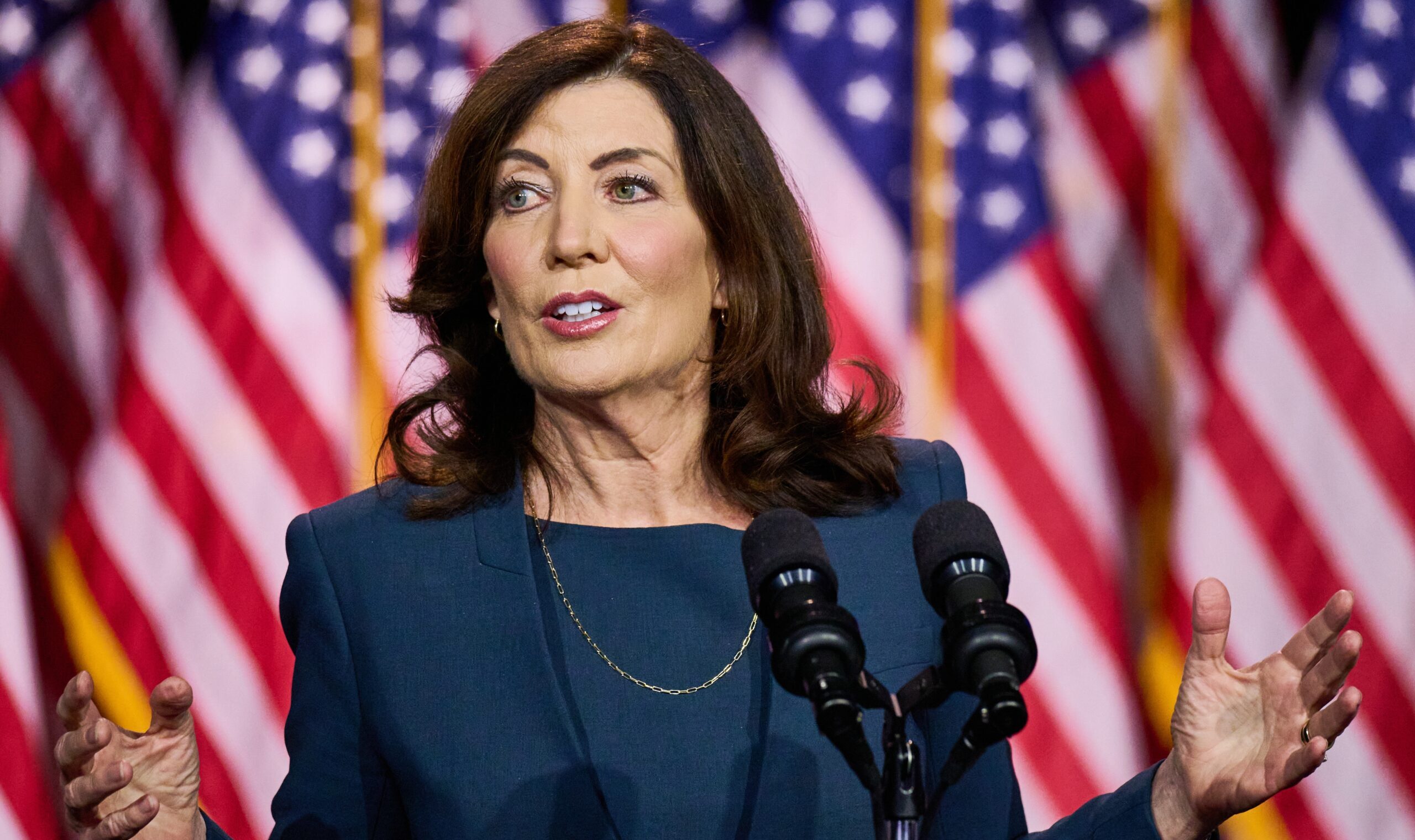Will Hochul Sign New York’s Assisted Suicide Bill?
The governor has studiously avoided taking sides—but now the decision is hers.

The New York state senate on Monday approved a controversial assisted suicide bill that has been circulating in Albany for nearly a decade. The Medical Aid in Dying (MAiD) Act is now on Kathy Hochul’s desk—forcing her to take sides in a fight from which the Democratic governor has consistently shrunk.
Hochul has not commented on the act, which was introduced and supported by members of her own party, since it passed through the senate along partisan lines. A spokesman told The American Conservative said that Hochul will “review” the bill, which allows terminally ill people to seek medical prescriptions for life-ending drugs.
This apparent ambivalence is consistent with Hochul’s attitude since she took office in 2021. At that time, the bill, which was first introduced in the State Assembly in 2016, had not gained significant legislative traction during any session. Hochul, who, for what it is worth, is a Catholic, has studiously avoided staking a position on assisted suicide.
“My personal opinions do not have a place in public policy,” she told reporters shortly after taking office. “I will be listening to both sides of the debate.”
For several years that strategy worked, and the bill never made it to a vote. But last year, spurred by the increased visibility of the issue, MAiD’s supporters claimed that they were close to whipping enough votes to get the bill on Hochul’s desk. If she signs, New York will join nine states and the District of Columbia with assisted suicide laws on the books (plus Montana, which has no law but whose Supreme Court ruled that the practice is legal in the state).
If she vetoes the bill, then Hochul will be the second Democrat in as many years to do so. Around this time in 2024, John Carney, the outgoing governor of Delaware, faced a similar decision. His party pushed through an assisted suicide bill—on much narrower lines than the New York proposal—and sent it to his desk for approval. Carney, who is also a Catholic, vetoed the bill, citing his own religious convictions, as well as the opinion of the American Medical Association (AMA), which holds that physician-assisted suicide is “fundamentally incompatible with the physician’s role as healer.”
Carney’s decision provoked an uproar among MAiD’s supporters in Delaware. The backlash emboldened his successor in office, Matt Meyer, to campaign on a promise to sign the bill into law should he be elected. He was elected, and he did sign the bill after it once again squeaked through the state legislature.
Hochul in some ways is in a similar position to Carney. Although assisted suicide is more popular among state lawmakers in New York, its opponents remain just as committed to stopping it. Catholic organizations in the state have fought the bill’s progress since it was introduced and even now are urging the governor to reject it. And, significantly, on the day of the state senate’s vote the AMA reaffirmed its opposition to assisted suicide.
“Medical aid in dying,” the organization wrote, is a contradiction in terms. The terminology “could apply to palliative care practices and compassionate care near the end of life that do not include intending the death of patients.” But the euphemism itself “is unacceptable for providing ethical guidance” on how to treat people who are near death.
Yet that opposition, well-spoken as it may be, may be too little, too late. Unlike Carney, Hochul is the governor of one of the largest states in America, and her decisions are closely watched—and held against her. Significantly, she is up for reelection next year. Assisted suicide is broadly popular, and support for it is only growing. To resist is to endanger one’s own ambitions. Hochul may well sign the bill into law.
In fact, for those who have been watching this fight since the beginning, the whole thing feels like fait accompli. Earlier this spring, after the bill passed through the state assembly, Andrea Stewart-Cousins, the state senate’s majority leader, told reporters that she only intended to bring the bill up for a vote if she was certain it would pass her chamber to the floor.
Subscribe Today
Get daily emails in your inbox
And, she added, she was also hesitant to move on the bill unless she had some assurance Hochul would sign, an outcome about which she could only speculate.
“She’s supportive,” she told reporters. “But I haven’t gotten a personal call.”